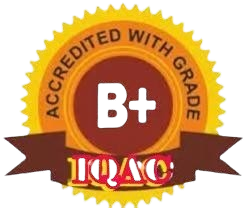I. Teachers and their Responsibilities:
- Teachers and Students :
- Respect the rights and dignity of the student in expressing his/her opinion;
- Deal justly and impartially with students regardless of their religion, caste, gender, political, economic, social and physical characteristics.
- Recognize the difference in aptitude and capabilities among students and strive to meet their individual needs;
- Encourage students to improve their attainments, develop their personalities and at the same time contribute to community welfare.
- Teach among students scientific temper, spirit of inquiry and ideals of democracy, patriotism, social justice, environmental protection and peace;
- Treat the students with dignity and not behave in a hurtful manner towards any of them for any reason
- Pay attention to only the attainment of the student in the assessment of merit.
- Aid students to develop an understanding of our national heritage and national goals;
- Refrain from inciting students against other students, colleagues or administration.
- Teachers and Colleagues
- Treat other members of the profession in the same manner as they themselves wish to be treated;
- Speak respectfully of other teachers and render assistance for professional betterment.
- Refrain from making unsubstantiated allegations against colleagues to higher authorities.
- Refrain from allowing considerations of caste, creed, religion, race or sex in their professional endeavor.
- Teachers and Authorities:
- Co-operate in the formulation of policies of the institution by accepting various offices and discharge responsibilities which such offices may demand.
- Co-operate through their organizations in the formulation of policies of the other institutions and accept offices.
- Co-operate with the authorities for the betterment of the institutions keeping in view the interest and in conformity with the dignity of the profession.
- Adhere to the terms of contract/service.
- Give and expect due notice before a change of position takes place.
- Teachers and Non-Teaching Staff :
- Treat the non-teaching staff as colleagues and equal partners in a cooperative undertaking, within every educational institution.
- Help in the functioning of joint-staff councils covering both the teachers and the non-teaching staff.
- Teachers and Guardians
- Try to see through teachers’ bodies and organizations, that institutions maintain contact with the guardians, their students, send reports of their performance to the guardians whenever necessary and meet the guardians in meetings convened for the purpose for mutual exchange of ideas and for the benefit of the institution.
- Teachers and Society
- Recognize that education is a public service and strive to keep the public informed of the educational programmes which are being provided.
- Work to improve education in the community and strengthen the community’s moral and intellectual life.
- Be aware of social problems and take part in such activities as would be conducive to the progress of society and hence the country as a whole.
- Perform the duties of citizenship, participate in community activities and shoulder responsibilities of public offices.
- Refrain from taking part in or subscribing to or assisting in any way activities, which tend to promote feeling of hatred or enmity among different communities, religions or linguistic groups but actively work for national integration.



